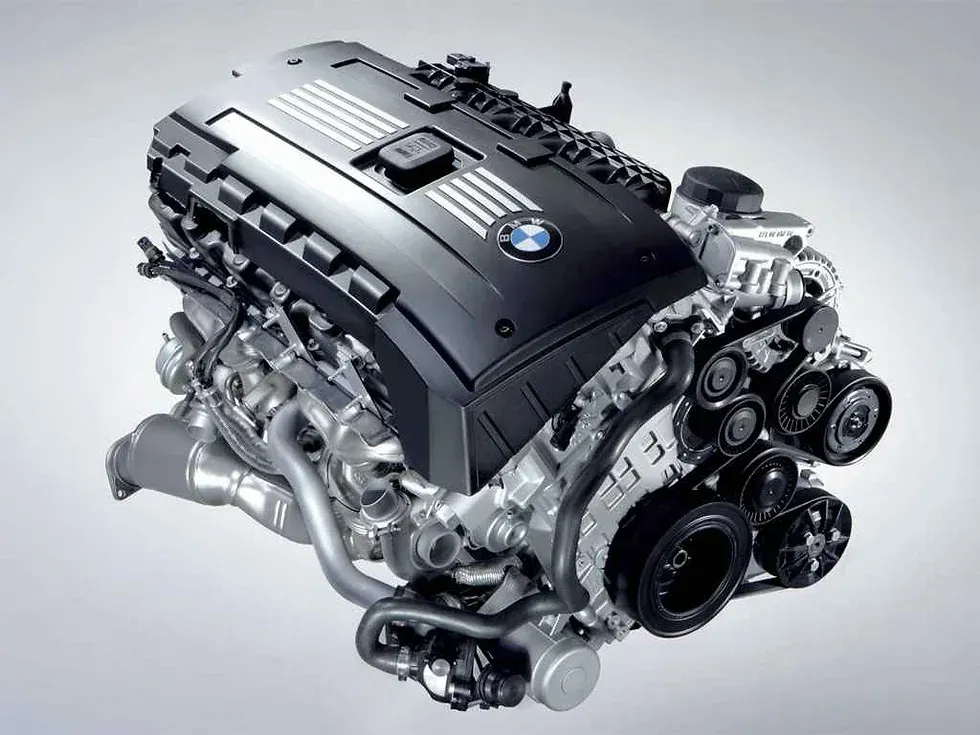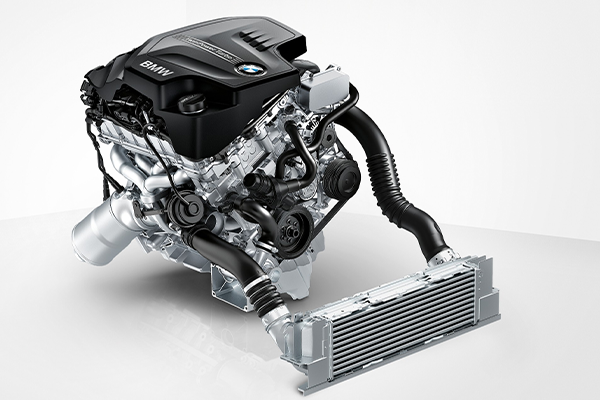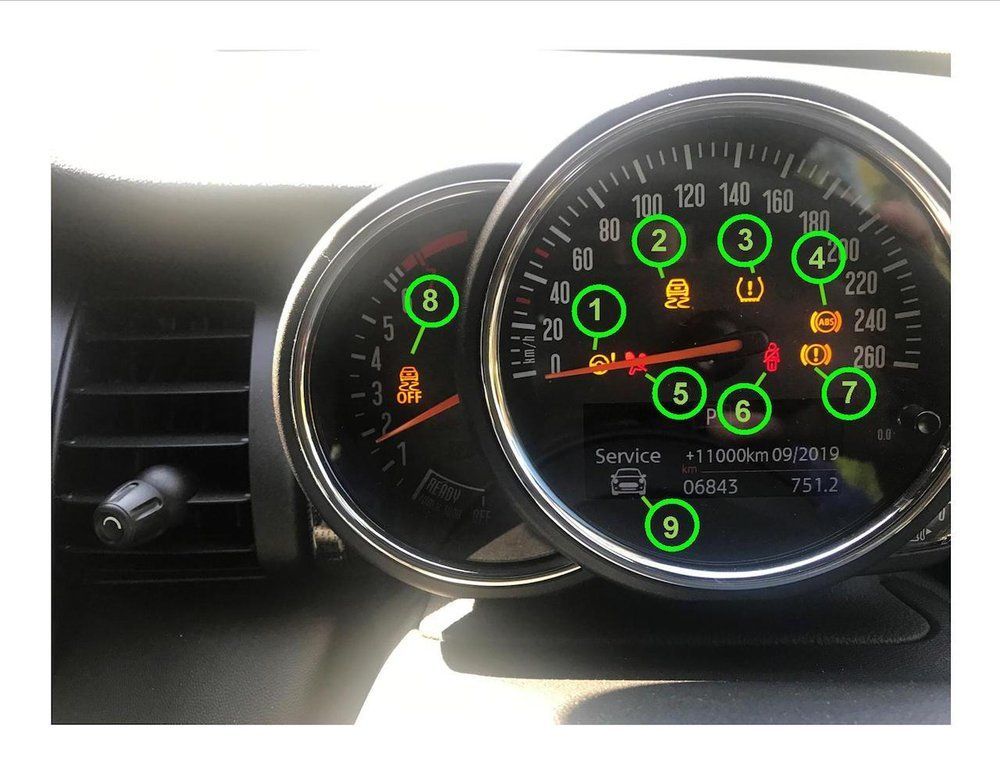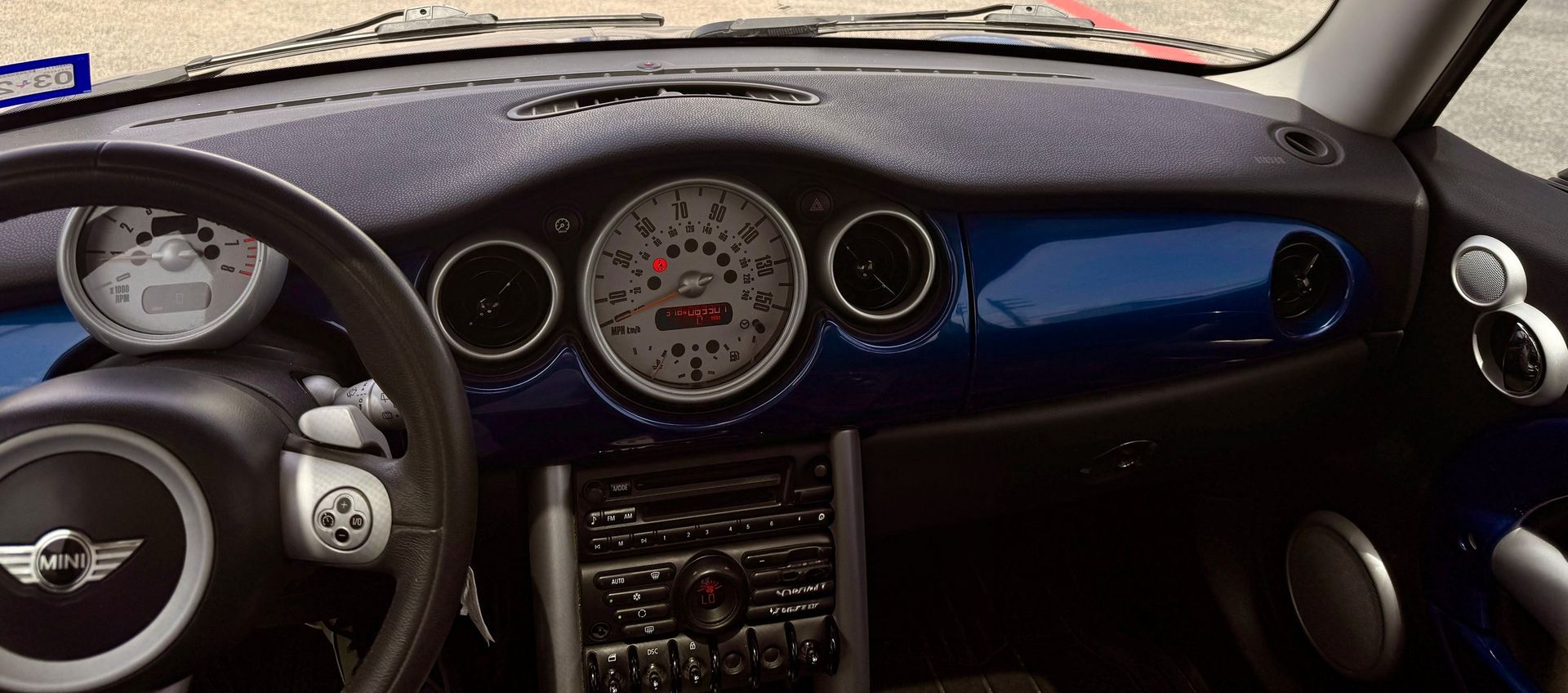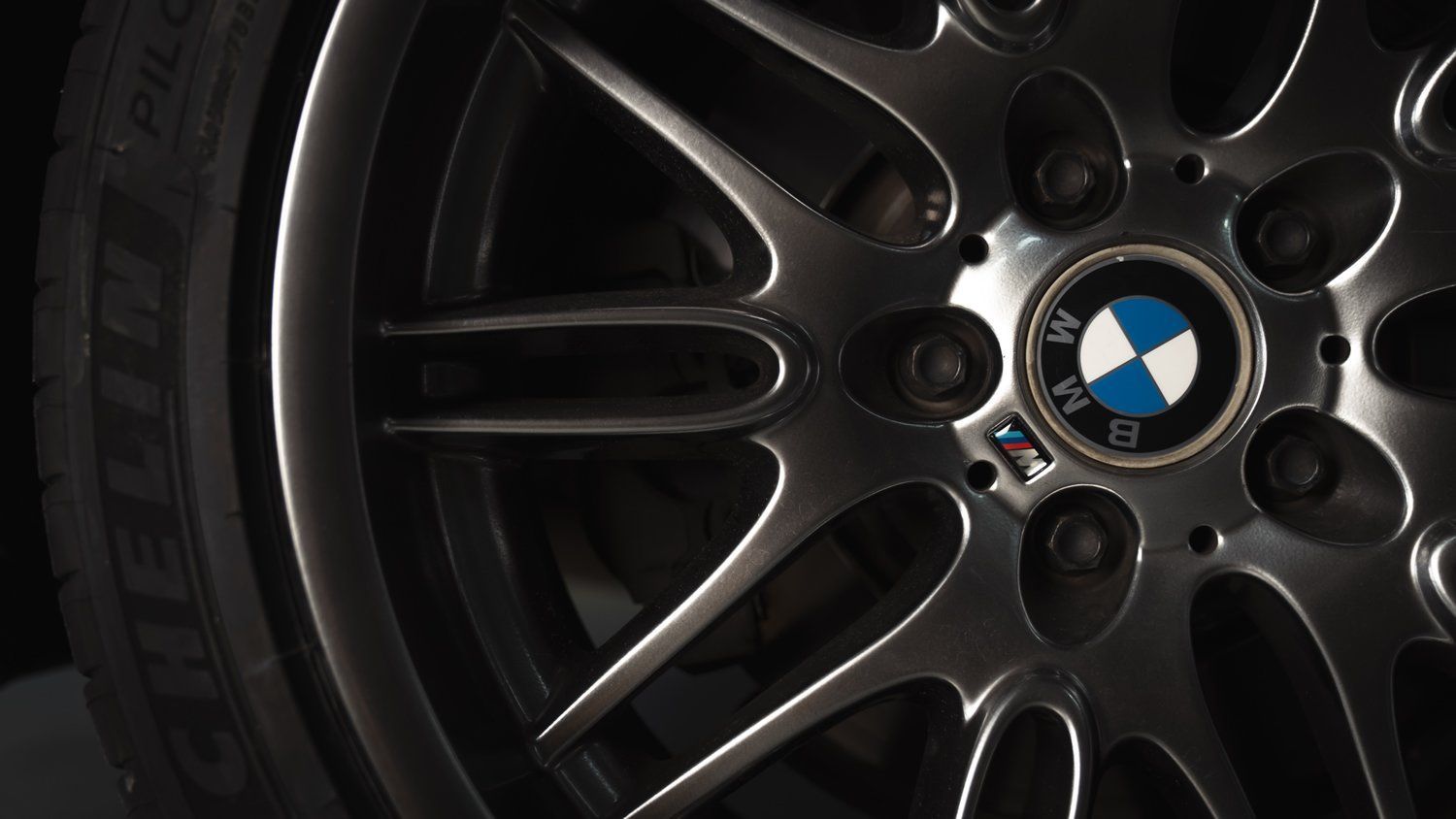BMW's N54 Engine: What Is It, Why We Love It, and How to Avoid its Most Common Issues
C Deselle • December 20, 2024
Introduction
The BMW N54 engine has secured its place as one of the most iconic power plants in automotive history, particularly among BMW enthusiasts. Since its introduction in 2006, this 3.0-liter inline-six engine has been revered for its groundbreaking twin-turbocharged design, which delivered an exhilarating driving experience unlike any of its naturally aspirated predecessors. The N54 was the first mass-produced turbocharged engine by BMW in decades, and it set the stage for a new era of performance vehicles.
History and Development
The N54 engine was developed as a response to the growing demand for more powerful and fuel-efficient engines. Launched in 2006, it was BMW’s first mass-produced turbocharged engine since the 1970s, marking a significant shift in the company’s approach to performance. The N54 was designed to replace the naturally aspirated M54 and N52 engines, which had been the mainstay of BMW’s six-cylinder lineup.
One of the key motivations behind the N54's development was the need to meet increasingly stringent emissions regulations without sacrificing performance. The use of turbocharging allowed BMW to extract more power from a smaller displacement engine while improving fuel efficiency and reducing emissions.
Technical Specifications and Key Features
The N54 engine is a 3.0-liter inline-six that features an all-aluminum construction, making it lightweight and efficient. Its most notable feature is the use of two small turbochargers, which provide a significant boost in power and torque across the entire rev range. The engine produces 302 horsepower and 295 lb-ft of torque in its standard form, although many enthusiasts have achieved much higher figures through tuning, a service we perform regularly for our performance-driven customers of TMJ Bimmers Euro Car Care.
Key features of the N54 engine include:
Twin Turbochargers: The N54 employs two small, low-inertia turbochargers, which work in parallel to provide a smooth and linear power delivery. This setup minimizes turbo lag and delivers immediate throttle response.
Direct Injection: The engine uses direct fuel injection, which improves fuel atomization and combustion efficiency, resulting in more power and better fuel economy.
All-Aluminum Construction: The lightweight aluminum block and head contribute to better weight distribution and handling characteristics in the vehicles it powers.
Dual VANOS: BMW's variable valve timing system optimizes performance and efficiency across the entire RPM range.
Applications: Which BMW Models Featured the N54 Engine?
The N54 engine was used in a variety of BMW models, making it accessible to a broad range of enthusiasts. Some of the most popular models that featured the N54 engine include:
E90/E92/E93 3 Series: The N54 powered the 335i, which quickly became a favorite among enthusiasts for its blend of performance and practicality.
E82/E88 1 Series: The 135i was another popular model, offering N54 performance in a more compact and lightweight package.
E60 5 Series: The 535i brought the N54's turbocharged performance to the midsize luxury sedan segment.
E89 Z4: The N54 powered the Z4 sDrive35i, giving the roadster exceptional performance capabilities.
E71 X6: In the X6 xDrive35i, the N54 provided ample power for BMW’s sporty SUV.
Performance and Tuning Potential
One of the main reasons enthusiasts love the N54 is its incredible performance potential. Straight out of the factory, the N54 delivers impressive power and torque, but it's true appeal lies in its tunability. The robust design of the engine, combined with the twin-turbo setup, means that it can handle significant increases in power with relatively simple modifications.
The Twin-Turbocharged Experience
Smooth Power Delivery and Torque Characteristics
Durability and Engineering Excellence
Enthusiast Community Support and Aftermarket Options
Common Issues with the N54 Engine
High-Pressure Fuel Pump (HPFP) Failure
One of the most well-known issues with the N54 engine is the failure of the high-pressure fuel pump (HPFP). The HPFP is responsible for delivering fuel to the engine at the high pressures required for direct injection. Unfortunately, the original design of the HPFP was prone to failure, leading to symptoms such as long cranking times, engine misfires, and a reduction in power.
Turbocharger Wastegate Rattle and Failure
Another common problem with the N54 engine is wastegate rattle, which occurs when the wastegate actuator becomes loose or worn. This can lead to a rattling noise, especially at low RPMs, and in more severe cases, it can cause boost pressure issues and a reduction in performance.
Carbon Buildup in Intake Valves
Due to the direct injection design of the N54, carbon buildup on the intake valves is a common issue. Unlike port injection systems, which have fuel passing over the intake valves and helping to keep them clean, direct injection sprays fuel directly into the combustion chamber. Over time, this can lead to significant carbon buildup on the intake valves, causing reduced airflow, misfires, and a loss of power.
Water Pump and Thermostat Issues
The electric water pump and thermostat in the N54 are known to fail, often at around 60,000 to 80,000 miles. When the water pump fails, it can lead to overheating, which can cause serious damage to the engine if not addressed promptly. The thermostat, which controls the flow of coolant through the engine, is also prone to failure and can cause similar overheating issues.
Oil Leaks from the Valve Cover Gasket and Oil Filter Housing
Oil leaks are a common issue with the N54 engine, particularly from the valve cover gasket and the oil filter housing gasket. The valve cover gasket tends to become brittle over time, leading to oil seeping out and causing a mess in the engine bay. Similarly, the oil filter housing gasket can degrade, leading to oil leaks that can drip onto the serpentine belt, potentially causing it to slip or fail.
Injectors and Coil Packs Problems
The N54 engine’s fuel injectors and coil packs are also known to be problematic. The injectors, particularly in early models, are prone to leaking or failing, leading to rough idling, misfires, and poor fuel economy. BMW revised the design of the injectors over the years, but issues can still occur, especially in high-mileage engines.
Coil packs, which are responsible for delivering spark to the engine, are another common failure point. When a coil pack fails, it can cause a misfire, leading to a rough-running engine and a reduction in performance. Fortunately, coil packs are relatively inexpensive and easy to replace.
The N54 engine generates a significant amount of heat, particularly when tuned for higher performance. This heat can put a strain on the engine’s cooling system, leading to issues such as overheating, coolant leaks, and even engine damage if not properly managed.
Maintenance Tips to Keep Your N54 Running Strong
While the N54 is known for its issues, proper maintenance and care can help keep the engine running smoothly and reliably for many miles. Here are some maintenance tips to consider:
Regular Oil Changes: Use high-quality synthetic oil and change it regularly to ensure proper lubrication and reduce the risk of oil-related issues.
Address Leaks Promptly: If you notice any oil or coolant leaks, address them as soon as possible to prevent further damage.
Keep the Cooling System in Top Shape: Regularly inspect and maintain the cooling system, including the water pump, thermostat, and radiators, to prevent overheating.
Perform Walnut Blasting: Schedule regular walnut blasting to keep the intake valves clean and maintain optimal engine performance.
Upgrade Weak Components: Consider upgrading common failure points such as the HPFP, turbochargers, and cooling system components to more robust aftermarket options.
The BMW N54 engine is a true icon in the world of performance cars. Its combination of twin-turbocharged power, smooth delivery, and immense tuning potential has made it a favorite among BMW enthusiasts. Despite its quirks and common issues, the N54 remains a beloved engine, offering an unparalleled driving experience when properly maintained.
For those who appreciate the art of engineering and the thrill of performance driving, the N54 is a testament to BMW’s ability to push the boundaries of what’s possible. Whether you’re a seasoned BMW enthusiast or a newcomer to the brand, the N54 offers a unique and rewarding ownership experience that is hard to match. While it may require a bit more attention and care than other engines, the N54’s performance and legacy make it well worth the effort and we at TMJ Bimmers are your local experts for BMW Service, Repair and Performance Upgrades in the Houston area!
The BMW N54 engine has secured its place as one of the most iconic power plants in automotive history, particularly among BMW enthusiasts. Since its introduction in 2006, this 3.0-liter inline-six engine has been revered for its groundbreaking twin-turbocharged design, which delivered an exhilarating driving experience unlike any of its naturally aspirated predecessors. The N54 was the first mass-produced turbocharged engine by BMW in decades, and it set the stage for a new era of performance vehicles.
For many, the N54 engine represents the epitome of BMW's engineering prowess. It offers a perfect balance between everyday drivability and breathtaking performance, with a tuning potential that has captured the imagination of car enthusiasts around the world. However, despite its many accolades, the N54 is also known for its fair share of issues, making it a topic of heated debate within the BMW community. In this blog, we’ll take a closer look at what makes the N54 so special, why it’s beloved by many, and what common issues owners might encounter.
What is the N54 BMW Engine?
The N54 engine was developed as a response to the growing demand for more powerful and fuel-efficient engines. Launched in 2006, it was BMW’s first mass-produced turbocharged engine since the 1970s, marking a significant shift in the company’s approach to performance. The N54 was designed to replace the naturally aspirated M54 and N52 engines, which had been the mainstay of BMW’s six-cylinder lineup.
One of the key motivations behind the N54's development was the need to meet increasingly stringent emissions regulations without sacrificing performance. The use of turbocharging allowed BMW to extract more power from a smaller displacement engine while improving fuel efficiency and reducing emissions.
Technical Specifications and Key Features
The N54 engine is a 3.0-liter inline-six that features an all-aluminum construction, making it lightweight and efficient. Its most notable feature is the use of two small turbochargers, which provide a significant boost in power and torque across the entire rev range. The engine produces 302 horsepower and 295 lb-ft of torque in its standard form, although many enthusiasts have achieved much higher figures through tuning, a service we perform regularly for our performance-driven customers of TMJ Bimmers Euro Car Care.
Key features of the N54 engine include:
Twin Turbochargers: The N54 employs two small, low-inertia turbochargers, which work in parallel to provide a smooth and linear power delivery. This setup minimizes turbo lag and delivers immediate throttle response.
Direct Injection: The engine uses direct fuel injection, which improves fuel atomization and combustion efficiency, resulting in more power and better fuel economy.
All-Aluminum Construction: The lightweight aluminum block and head contribute to better weight distribution and handling characteristics in the vehicles it powers.
Dual VANOS: BMW's variable valve timing system optimizes performance and efficiency across the entire RPM range.
Applications: Which BMW Models Featured the N54 Engine?
The N54 engine was used in a variety of BMW models, making it accessible to a broad range of enthusiasts. Some of the most popular models that featured the N54 engine include:
E90/E92/E93 3 Series: The N54 powered the 335i, which quickly became a favorite among enthusiasts for its blend of performance and practicality.
E82/E88 1 Series: The 135i was another popular model, offering N54 performance in a more compact and lightweight package.
E60 5 Series: The 535i brought the N54's turbocharged performance to the midsize luxury sedan segment.
E89 Z4: The N54 powered the Z4 sDrive35i, giving the roadster exceptional performance capabilities.
E71 X6: In the X6 xDrive35i, the N54 provided ample power for BMW’s sporty SUV.
Why Do People Love the N54?
One of the main reasons enthusiasts love the N54 is its incredible performance potential. Straight out of the factory, the N54 delivers impressive power and torque, but it's true appeal lies in its tunability. The robust design of the engine, combined with the twin-turbo setup, means that it can handle significant increases in power with relatively simple modifications.
With basic bolt-on upgrades and tuning, many N54 engines can easily exceed 400 horsepower, and with more extensive modifications, power figures can climb even higher. This level of performance, combined with the engine's strong aftermarket support, has made the N54 a favorite among those looking to extract maximum performance from their BMW.
The twin-turbocharged setup of the N54 provides a driving experience that is both exhilarating and refined. The two small turbochargers work in harmony to deliver a broad powerband, with minimal turbo lag. This results in a smooth and linear power delivery that is highly addictive, especially in models like the 335i and 135i, where the combination of power and agility creates a truly engaging driving experience.
Unlike some turbocharged engines that suffer from a sudden surge of power, the N54's twin-turbo setup delivers power smoothly and progressively. This makes the engine feel more naturally aspirated, with a consistent and predictable response throughout the rev range. The N54’s torque characteristics are also noteworthy, with peak torque available from as low as 1,300 RPM, providing strong acceleration at any speed.
Despite the common issues associated with the N54 (which we’ll discuss later), the engine is widely regarded as a well-engineered piece of machinery. When properly maintained, the N54 can be incredibly durable, with many engines achieving high mileage with minimal issues. BMW’s use of high-quality materials and advanced engineering techniques is evident in the N54, and this has helped to cement its reputation as a reliable performance engine.
The N54 engine has fostered a vibrant enthusiast community, with countless forums, clubs, and online groups dedicated to discussing, modifying, and maintaining the engine. This community support has led to a thriving aftermarket scene, with a wide range of performance parts and tuning solutions available for the N54. Whether you’re looking to increase power, improve reliability, or simply personalize your BMW, the N54’s aftermarket support makes it easy to achieve your goals.
While the N54 is loved for its performance and tuning potential, it’s also infamous for a number of common issues. Understanding these issues is crucial for anyone considering purchasing or maintaining a BMW with this engine.
One of the most well-known issues with the N54 engine is the failure of the high-pressure fuel pump (HPFP). The HPFP is responsible for delivering fuel to the engine at the high pressures required for direct injection. Unfortunately, the original design of the HPFP was prone to failure, leading to symptoms such as long cranking times, engine misfires, and a reduction in power.
BMW acknowledged this issue and offered extended warranties and recalls for affected vehicles. However, even with replacement pumps, some owners have experienced repeated failures, making this one of the most notorious issues associated with the N54.
Another common problem with the N54 engine is wastegate rattle, which occurs when the wastegate actuator becomes loose or worn. This can lead to a rattling noise, especially at low RPMs, and in more severe cases, it can cause boost pressure issues and a reduction in performance.
The wastegate rattle is often a precursor to turbocharger failure, which can be a costly repair. Many N54 owners have opted to upgrade their turbochargers to more robust aftermarket units to address this issue and improve performance at the same time.
Due to the direct injection design of the N54, carbon buildup on the intake valves is a common issue. Unlike port injection systems, which have fuel passing over the intake valves and helping to keep them clean, direct injection sprays fuel directly into the combustion chamber. Over time, this can lead to significant carbon buildup on the intake valves, causing reduced airflow, misfires, and a loss of power.
Regular walnut blasting, a procedure where walnut shells are blasted at high pressure to clean the intake valves, is a common maintenance task for N54 owners to prevent and address carbon buildup.
The electric water pump and thermostat in the N54 are known to fail, often at around 60,000 to 80,000 miles. When the water pump fails, it can lead to overheating, which can cause serious damage to the engine if not addressed promptly. The thermostat, which controls the flow of coolant through the engine, is also prone to failure and can cause similar overheating issues.
Replacing the water pump and thermostat as part of preventative maintenance is recommended to avoid more severe problems down the line.
Oil leaks are a common issue with the N54 engine, particularly from the valve cover gasket and the oil filter housing gasket. The valve cover gasket tends to become brittle over time, leading to oil seeping out and causing a mess in the engine bay. Similarly, the oil filter housing gasket can degrade, leading to oil leaks that can drip onto the serpentine belt, potentially causing it to slip or fail.
These leaks are relatively straightforward to fix, but they are a common headache for N54 owners, especially as the engine ages.
The N54 engine’s fuel injectors and coil packs are also known to be problematic. The injectors, particularly in early models, are prone to leaking or failing, leading to rough idling, misfires, and poor fuel economy. BMW revised the design of the injectors over the years, but issues can still occur, especially in high-mileage engines.
Coil packs, which are responsible for delivering spark to the engine, are another common failure point. When a coil pack fails, it can cause a misfire, leading to a rough-running engine and a reduction in performance. Fortunately, coil packs are relatively inexpensive and easy to replace.
Managing Heat: Cooling System Concerns
The N54 engine generates a significant amount of heat, particularly when tuned for higher performance. This heat can put a strain on the engine’s cooling system, leading to issues such as overheating, coolant leaks, and even engine damage if not properly managed.
Upgrading the cooling system with components such as larger radiators, upgraded intercoolers, and improved oil coolers is a common approach for N54 owners who are looking to increase the engine’s reliability and performance.
While the N54 is known for its issues, proper maintenance and care can help keep the engine running smoothly and reliably for many miles. Here are some maintenance tips to consider:
Regular Oil Changes: Use high-quality synthetic oil and change it regularly to ensure proper lubrication and reduce the risk of oil-related issues.
Address Leaks Promptly: If you notice any oil or coolant leaks, address them as soon as possible to prevent further damage.
Keep the Cooling System in Top Shape: Regularly inspect and maintain the cooling system, including the water pump, thermostat, and radiators, to prevent overheating.
Perform Walnut Blasting: Schedule regular walnut blasting to keep the intake valves clean and maintain optimal engine performance.
Upgrade Weak Components: Consider upgrading common failure points such as the HPFP, turbochargers, and cooling system components to more robust aftermarket options.
The BMW N54 engine is a true icon in the world of performance cars. Its combination of twin-turbocharged power, smooth delivery, and immense tuning potential has made it a favorite among BMW enthusiasts. Despite its quirks and common issues, the N54 remains a beloved engine, offering an unparalleled driving experience when properly maintained.
For those who appreciate the art of engineering and the thrill of performance driving, the N54 is a testament to BMW’s ability to push the boundaries of what’s possible. Whether you’re a seasoned BMW enthusiast or a newcomer to the brand, the N54 offers a unique and rewarding ownership experience that is hard to match. While it may require a bit more attention and care than other engines, the N54’s performance and legacy make it well worth the effort and we at TMJ Bimmers are your local experts for BMW Service, Repair and Performance Upgrades in the Houston area!
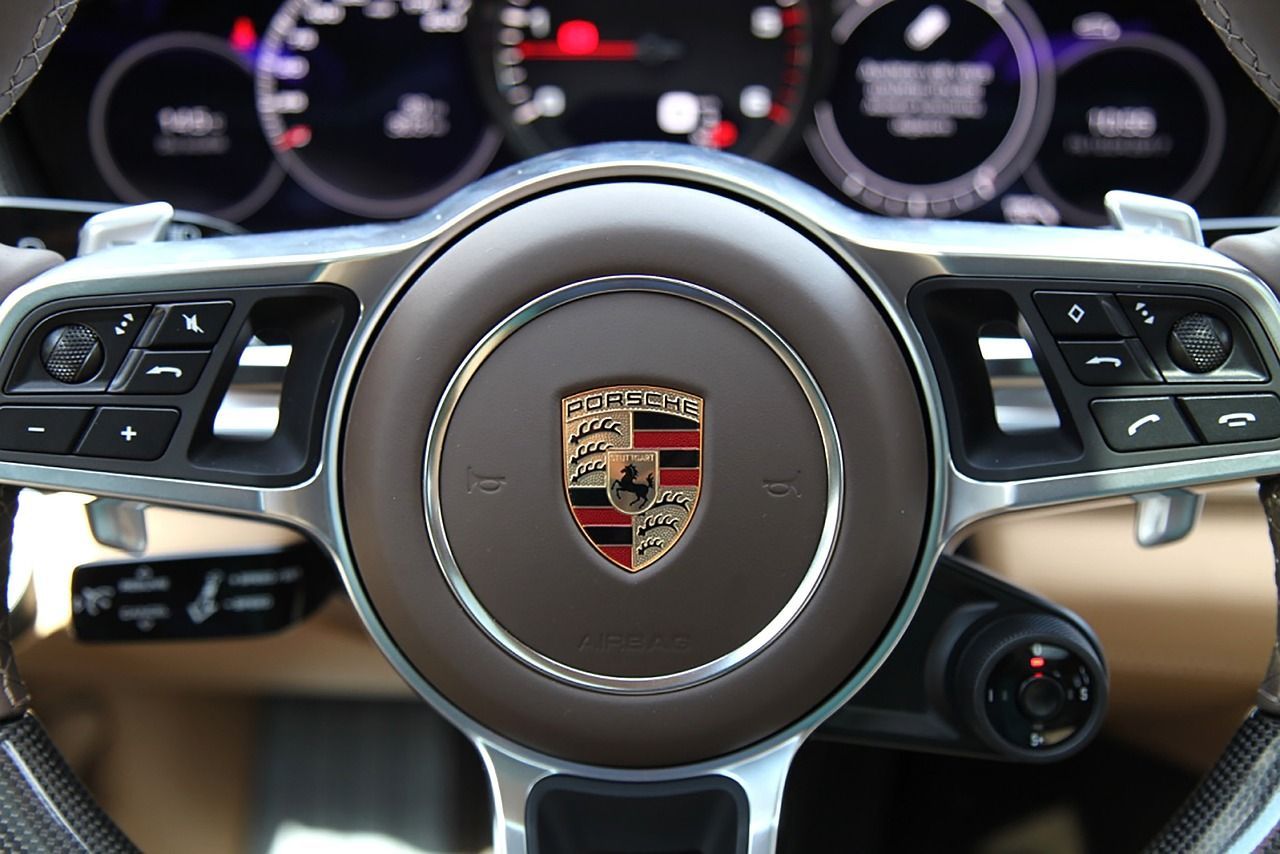
As a proud Porsche owner, you know your car is more than just a mode of transportation—it’s a masterpiece of engineering, performance, and luxury. However, like any high-performance vehicle, your Porsche is equipped with a variety of warning lights on the dashboard designed to keep you informed about its health. Understanding these lights is crucial for maintaining your Porsche in peak condition. This guide will walk you through the most common Porsche warning lights, explain what they mean, and provide guidance on the necessary actions to take when they appear. Why Warning Lights Matter Warning lights serve as your Porsche’s way of communicating potential issues, ranging from minor concerns to critical problems requiring immediate attention. These alerts can range from simple reminders, such as a low fuel warning, to serious issues like engine or braking system malfunctions. Ignoring these warnings can lead to costly repairs or even hazardous situations on the road. By understanding these indicators, you can take the appropriate actions to ensure your Porsche continues to run smoothly and efficiently. 1. Check Engine Light (CEL) What It Looks Like: A yellow or amber outline of an engine, sometimes with the word "CHECK." What It Means: This light indicates that the vehicle’s onboard diagnostics system has detected an issue. The cause could range from something minor, like a loose gas cap, to more serious problems, such as engine misfires, faulty oxygen sensors, or catalytic converter issues. What to Do: If the light is steady, schedule a diagnostic check as soon as possible. If it's flashing, it indicates a severe issue that requires immediate attention—pull over and have your Porsche towed to a repair shop to prevent engine damage. 2. Battery Warning Light What It Looks Like: A red battery icon. What It Means: This indicates that your Porsche’s battery is not charging properly, which could be due to a failing alternator, a weak battery, or corroded connections. What to Do: Reduce electrical usage and drive to a service center immediately. If the battery is completely discharged, your Porsche may not restart. 3. Brake Warning Light What It Looks Like: A red circle with an exclamation point inside or the word "BRAKE." What It Means: This could indicate low brake fluid levels, worn brake pads, or an issue with the braking system. What to Do: Check if your parking brake is engaged. If the light remains on, have your brakes inspected immediately at TMJ Bimmers to ensure safety. 4. Oil Pressure Warning Light What It Looks Like: A red oil can symbol with a drip. What It Means: Low oil pressure, which may result from low oil levels, a failing oil pump, or an oil leak. What to Do: Pull over immediately and check the oil level. If adding oil doesn’t resolve the issue, have your Porsche towed to a service center to prevent engine damage. 5. ABS (Anti-lock Braking System) Warning Light What It Looks Like: A yellow or amber circle with the letters "ABS." What It Means: There is an issue with your Porsche’s anti-lock braking system, which helps maintain control during hard braking. What to Do: While regular brakes may still function, have the ABS system inspected as soon as possible to avoid compromised braking performance. 6. Tire Pressure Monitoring System (TPMS) Light What It Looks Like: An exclamation point inside a horseshoe shape. What It Means: One or more tires are underinflated, which can impact handling and fuel efficiency. What to Do: Check tire pressure and inflate to the recommended levels. If the light persists, have the TPMS system checked. 7. Coolant Temperature Warning Light What It Looks Like: A red thermometer symbol. What It Means: Your Porsche's engine is overheating, possibly due to low coolant levels or radiator issues. What to Do: Pull over immediately, turn off the engine, and allow it to cool. Check coolant levels and top off if needed, but seek professional service if the problem persists. 8. Airbag Warning Light What It Looks Like: A person with an airbag in front. What It Means: There is a malfunction in the airbag system, which may prevent airbags from deploying properly in an accident. What to Do: Have the system inspected immediately to ensure safety. 9. Engine Temperature Warning Light What It Looks Like: A red thermometer submerged in liquid. What It Means: The engine is running hotter than normal, often due to low coolant, a failing water pump, or a faulty thermostat. What to Do: Pull over, allow the engine to cool, and check coolant levels. If the light stays on, have the vehicle towed to TMJ Bimmers to avoid potentially catastrophic engine damage. 10. Steering Wheel Warning Light What It Looks Like: A yellow or red steering wheel icon. What It Means: A problem with the power steering system, making steering more difficult. What to Do: Drive cautiously and schedule a service appointment. 11. Transmission Warning Light What It Looks Like: A gear with an exclamation point or the word "TRANS." What It Means: There is a problem with the transmission system, such as low fluid levels or mechanical failure. What to Do: Avoid hard accelerations and schedule a transmission inspection immediately. 12. Fuel Indicator Light What It Looks Like: A yellow gas pump icon. What It Means: Your fuel level is low, usually at 10-15% capacity. What to Do: Refuel as soon as possible to prevent running out and avoid damage to the fuel pump. Why Choose TMJ Porsche Specialists for Diagnostic Testing? While some warning lights may have simple solutions, others require expert diagnosis and repair. Porsches are complex, high-performance vehicles that demand specialized care. At TMJ Bimmers, we have the expertise and advanced equipment to accurately diagnose and repair any Porsche issues. Our team understands Porsche-specific systems, ensuring your vehicle receives the best possible care. Conclusion Understanding your Porsche’s warning lights is essential for keeping your vehicle in peak condition. By addressing these alerts promptly, you can prevent minor issues from escalating into costly repairs. If you’re unsure about a warning light or need expert advice, contact TMJ Bimmers Euro Car Care at 713.384.2273. We’re here to ensure your Porsche remains a top-performing machine on the road.

BMW is a brand synonymous with performance, luxury, and driving pleasure. But for those who crave an extra level of speed, precision, and adrenaline, BMW’s M-Series—often called “M Cars”—stands at the pinnacle of automotive excellence. If you’ve ever wondered what makes an M Car different from a standard BMW, this article will dive into its history, origins, various models, and what sets these high-performance machines apart. The Origin of BMW M Cars BMW M, short for BMW Motorsport GmbH, was established in 1972 as the performance division of BMW. Originally, the M division was created to support BMW’s racing efforts, developing high-performance engines, chassis, and aerodynamics to compete in various motorsport events. The first major success of BMW M was in racing, particularly with the legendary BMW 3.0 CSL, a car that dominated the European Touring Car Championship in the 1970s. The success of BMW’s racing program led to the idea of bringing motorsport technology to road cars, and thus, the M Series was born. The First M Car: The BMW M1 (1978) The first-ever BMW M car was the BMW M1 , introduced in 1978. Designed as a mid-engine supercar, the M1 was built for homologation purposes—meaning BMW had to produce road-legal versions of the car to compete in motorsport events. It featured a 3.5L inline-six engine producing 273 horsepower, an impressive figure for its time. However, due to production difficulties, only 453 M1s were ever made, making it one of the rarest and most collectible BMWs today. Evolution of the M Series: A Look at the Key Models After the M1, BMW shifted its focus to high-performance versions of its standard production models. Let’s take a look at some of the most iconic M cars throughout history. BMW M3 (E30, 1986-Present) The BMW M3 is arguably the most famous M car. It debuted in 1986 with the E30 generation as a homologation special for DTM (Deutsche Tourenwagen Masters) racing. The E30 M3 featured a high-revving 2.3L four-cylinder engine and a lightweight chassis, making it one of the best-handling sports sedans of its time. Since then, the M3 has evolved through multiple generations, with each one bringing more power and advanced technology. Modern M3s feature turbocharged inline-six engines and optional all-wheel drive, but they retain the spirit of precision and performance that made the original legendary. BMW M5 (E28, 1984-Present) The M5 is the high-performance version of the BMW 5 Series and is known as one of the fastest sedans in the world. The first M5 (E28) arrived in 1984 with a 3.5L inline-six engine producing 282 horsepower, making it the fastest production sedan of its time. Over the years, the M5 has continued to push the limits of performance sedans. The E60 M5 (2005-2010) is particularly notable for its 5.0L V10 engine, which revved up to 8,250 RPM and produced an exhilarating exhaust note. Today’s M5 models use twin-turbocharged V8 engines, offering immense power while still providing everyday luxury and comfort. BMW M4 (F82, 2014-Present) Introduced in 2014, the M4 replaced the M3 Coupe as the high-performance two-door variant. It featured a 3.0L twin-turbocharged inline-six engine, producing over 400 horsepower. The latest G82 M4 offers even more power, aggressive styling, and an available all-wheel-drive system for enhanced traction and performance. Other Notable M Cars BMW M2 – A compact, high-performance coupe that delivers the raw driving pleasure of early M3 models. BMW M8 – A luxury grand tourer with supercar levels of power and performance. BMW X5M/X6M – High-performance SUVs that blend speed with practicality. What Makes an M Car Special? While a standard BMW is already a great driver’s car, M Cars take it to another level. Here’s what makes them superior: 1. More Powerful Engines M Cars receive specially tuned engines that deliver significantly more power and performance. These engines often feature lightweight components, advanced cooling systems, and higher redlines compared to their standard BMW counterparts. 2. Enhanced Suspension & Handling BMW M models come with sportier suspensions, upgraded brakes, and precise steering. Many models also offer adaptive dampers, allowing drivers to adjust ride stiffness for daily comfort or track-ready performance. 3. Aerodynamic & Lightweight Construction M Cars often feature aggressive bodywork, including larger air intakes, rear spoilers, and carbon fiber components to improve aerodynamics and reduce weight. 4. Unique M Features & Design From M-specific steering wheels and sport seats to customizable drive modes and exclusive badges, BMW M models are designed to offer a more engaging and immersive driving experience. 5. Track-Ready Performance Whether it’s on the highway or the race track, M Cars are built to handle extreme driving conditions. Many models include features like launch control, drift modes, and high-performance tires. Why Choose an M Car Over a Regular BMW? For some drivers, a regular BMW is enough—but for those who want more excitement, an M Car is the ultimate choice. M Cars are built with enthusiasts in mind, offering sharper handling, better acceleration, and an overall more engaging driving experience. However, owning an M Car also comes with additional considerations. These high-performance vehicles require more specialized maintenance, premium fuel, and sometimes higher insurance costs. But for those who love driving, the added costs are well worth it. Final Thoughts BMW’s M-Series cars represent the pinnacle of the brand’s engineering and motorsport heritage. Whether it’s the legendary M3, the high-speed M5, or the track-focused M4, each M Car offers an unparalleled blend of performance, luxury, and driving excitement. If you’re considering stepping into the world of M Cars, be prepared for a thrilling ride! At TMJ Bimmers, we specialize in servicing and maintaining BMW M models, ensuring that your high-performance machine runs at its peak. Whether you need routine maintenance, performance upgrades, or repairs, our expert technicians are here to help. Call us at 713.384.2273 or book your service now https://sgenie.io/lreaa to keep your M Car in top shape!
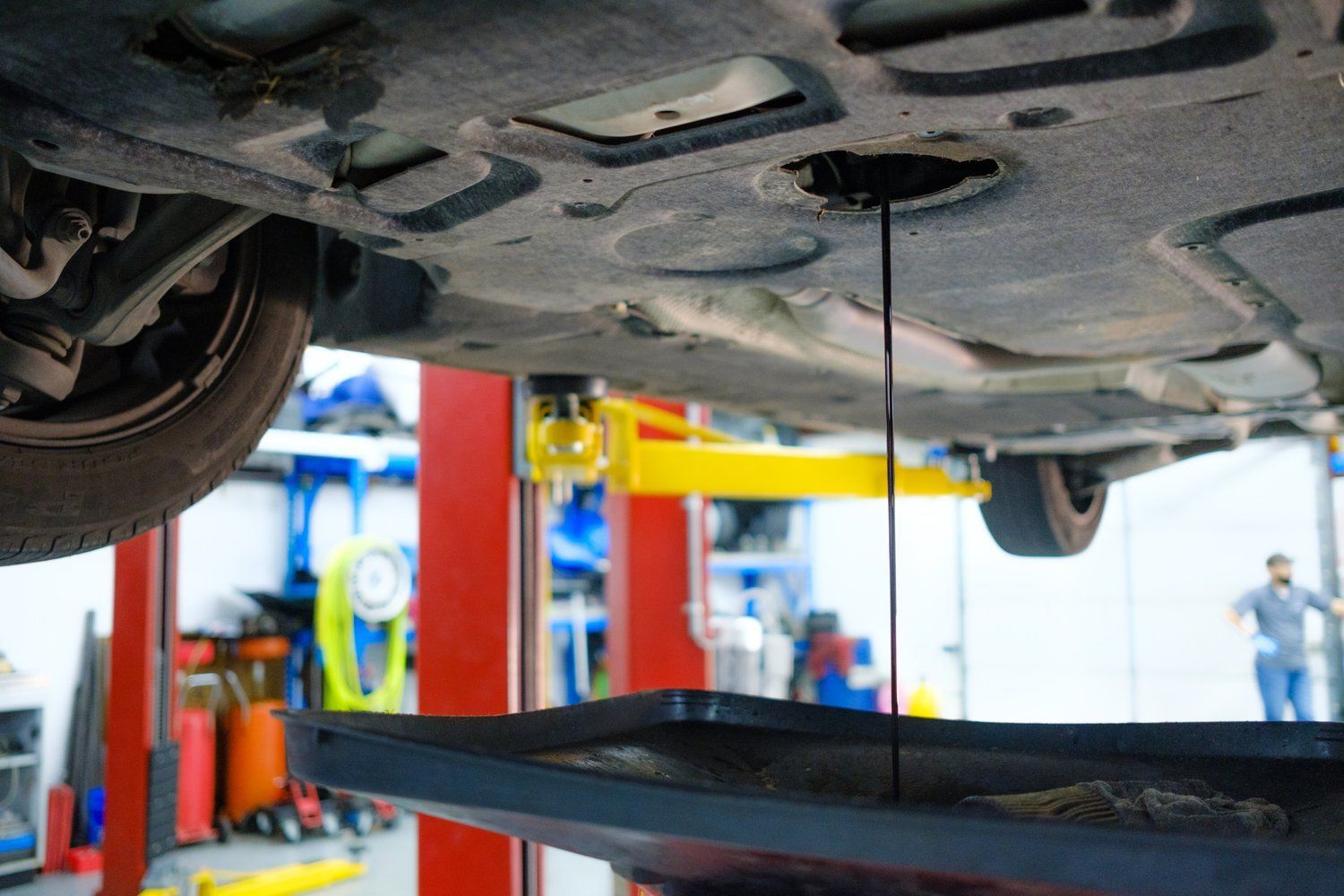
Oil leaks are one of the most common issues BMW owners encounter. While these leaks might seem like minor inconveniences, ignoring them can lead to costly repairs and potentially serious damage to your engine. At TMJ Bimmers, we’ve seen and repaired countless BMW oil leaks, and three culprits consistently top the list: valve cover leaks, oil filter housing gasket leaks, and oil pan gasket leaks. Let’s break down these issues, their causes, and how they can be resolved. 1. Valve Cover Gasket Leak What It Is: The valve cover sits on top of your BMW’s engine and seals the valve train. Over time, the gasket that seals the valve cover becomes brittle and starts to leak. This is particularly common in models like the BMW 3 Series, 5 Series, and X Series vehicles, especially those with higher mileage. Signs of a Problem: A burning oil smell due to oil dripping onto the exhaust manifold. Visible oil leaks around the top of the engine. Check engine light (CEL) due to misfires caused by oil seeping into the spark plug wells. Engine running rough or noticeable performance issues. Causes: High engine temperatures causing gasket material to degrade. Normal wear and tear due to age and usage. Improper installation or over-tightening during previous repairs. Waiting too long between oil changes; Extended oil change intervals leading to sludge buildup, which accelerates wear. Potential Consequences : If left unchecked, a valve cover gasket leak can lead to more severe problems, such as damaged ignition coils or fouled spark plugs. This can result in misfires, reduced fuel efficiency, and costly repairs. How We Fix It : At TMJ Bimmers, we replace the valve cover gasket with a high-quality OEM or aftermarket part, ensuring proper torque specifications to prevent future leaks. We also inspect the valve cover itself for cracks, which can occur on older models. After the repair, we thoroughly clean the area to remove any residual oil. 2. Oil Filter Housing Gasket Leak What It Is : The oil filter housing gasket seals the connection between the oil filter housing and the engine block. Over time, this gasket can deteriorate, leading to leaks. This issue is particularly common in turbocharged BMW engines, such as the N54 and N55. Signs of a Problem: Oil pooling near the front of the engine. Unexplained decreased oil levels between oil changes. Visible oil stains on the engine or driveway. Unusual engine noises caused by low oil pressure. Causes : Exposure to heat and pressure, which breaks down gasket material over time. Age-related wear, especially in vehicles with over 60,000 miles. Poor-quality replacement gaskets from previous repairs. Waiting too long between oil changes; Delayed oil changes causing sludge buildup around the gasket. Potential Consequences: Ignoring an oil filter housing gasket leak can cause engine components to wear prematurely. It can also lead to low oil pressure, which in extreme cases, can result in engine failure. How We Fix It: We’ll replace the failing gasket and thoroughly clean the area to ensure no residual oil remains. During the repair, we’ll inspect nearby components like the oil cooler gasket, as it’s often affected in tandem. Additionally, we check for oil contamination in the cooling system, which can occur if the issue is left unresolved for too long. 3. Oil Pan Gasket Leak What It Is: The oil pan gasket seals the oil pan to the bottom of the engine. This gasket can fail, especially in older or high-mileage BMWs. Vehicles that experience frequent stop-and-go driving or those exposed to harsh road conditions are particularly susceptible. Signs of a Problem: Oil spots on your garage floor or driveway. Visible oil dripping from the underside of the car. Low oil level warning on the dashboard. Increased oil consumption requiring frequent top-offs. Causes: Damage from road debris or impacts causing stress on the oil pan. Long-term wear and exposure to heat, which weakens gasket material. Over-tightened bolts leading to gasket compression and failure. Improper installation during previous repairs. Potential Consequences : An untreated oil pan gasket leak can lead to low oil levels, causing inadequate lubrication of engine components. Over time, this can result in excessive wear, overheating, and potentially catastrophic engine damage. How We Fix It: Replacing an oil pan gasket involves removing the oil pan, cleaning the mating surfaces, and installing a new gasket. This process requires precision and care, as improper installation can lead to further leaks. While the oil pan is off, we inspect for sludge or debris to ensure the engine stays in optimal condition. We also replace the engine oil and filter as part of the service. Why Do BMWs Experience Oil Leaks? BMWs are known for their precision engineering and high-performance engines. However, these characteristics also make them more prone to oil leaks due to: Higher operating temperatures compared to many other vehicles. The use of synthetic oil, which can expose weaknesses in gaskets over time. Complex engine designs with multiple gaskets and seals. Regular maintenance and timely repairs are key to keeping your BMW in peak condition. Why Choose TMJ Bimmers for Your BMW Repairs? Oil leaks are more than just a nuisance—they can compromise your engine’s performance and longevity. At TMJ Bimmers, we specialize in BMW maintenance and repairs, offering: Expertise : Our team is trained to diagnose and repair common BMW issues efficiently. High-Quality Parts : We use OEM and premium aftermarket parts to ensure durability and reliability. Transparent Communication : We’ll walk you through the repair process and provide clear, upfront pricing. Comprehensive Inspections : Every repair includes a thorough inspection to identify and address potential issues before they escalate. If you suspect your BMW has an oil leak, don’t wait for the problem to worsen. Contact us today at 713.384.2273 or visit tmjbimmers.com to book your appointment at our Houston shop to have your vehicle inspected. Let’s keep your BMW running smoothly and leak-free for miles to come!
